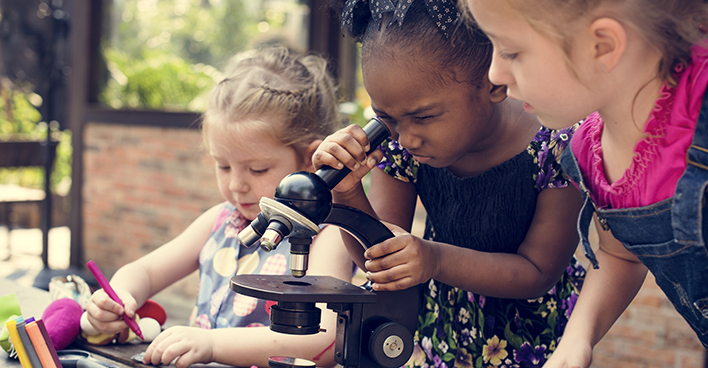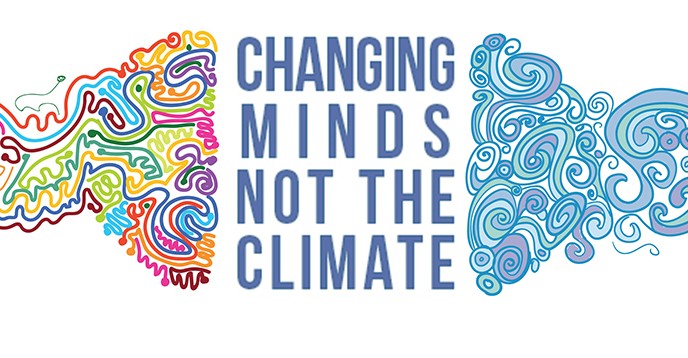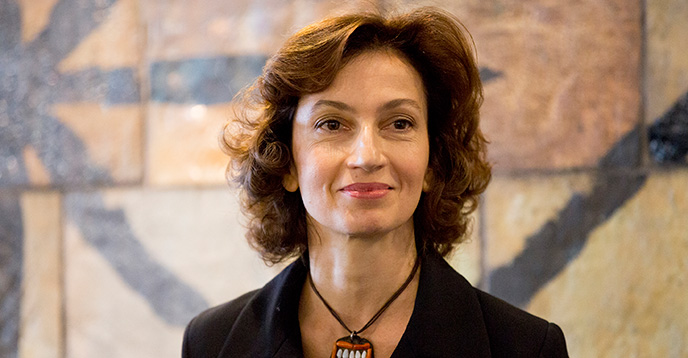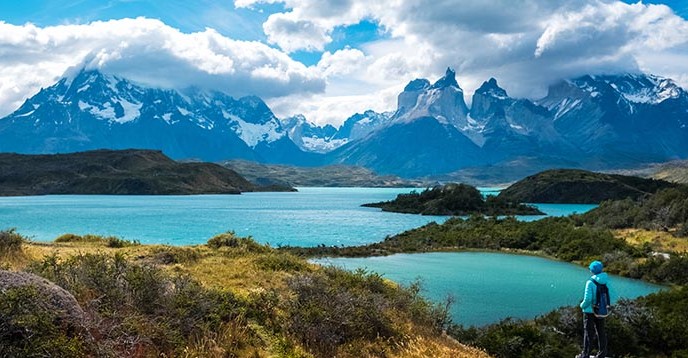World Science Day for Peace and Development

Building climate-ready communities
Celebrated every 10 November, World Science Day for Peace and Development highlights the important role of science in society and the need to engage the wider public in debates on emerging scientific issues. It also underlines the importance and relevance of science in our daily lives.
By linking science more closely with society, World Science Day for Peace and Development aims to ensure that citizens are kept informed of developments in science. It also underscores the role scientists play in broadening our understanding of the remarkable, fragile planet we call home and in making our societies more sustainable.
With climate change becoming a serious threat to the lives of billions of people and the planet, in 2021 the celebration will highlight the importance of “building climate-ready communities”.
Join the conversation with the hashtag #ScienceDay.
Building climate-ready communities
5 November 2021, 1-3 pm (GMT+1)
To celebrate the 2021 World Science Day for Peace and Development, UNESCO organized an webinar including panel discussions on “solutions for building climate-ready communities” and “global health in a changing environment”.
This event was also an opportunity to present the winner of the UNESCO Kalinga Prize for Science Popularization.
What UNESCO does for science for peace and development
About the 2021 commemoration
News
2021 theme: Building climate-ready communities
To celebrate the 20th edition of World Science Day for Peace and Development on 10 November, UNESCO and its scientific communities and partners are organizing a series of activities at UNESCO Headquarters and in UNESCO field offices in developing countries.
This year, the day will be celebrated at UNESCO headquarters on Friday 5 November 2021 from 13.00 to 15.00 (GMT+1) via a virtual discussion. The objective will be to showcase UNESCO’s work and that of some of its key partners in designing solutions to some of the challenges that human communities face in adapting to climate change.
The event will build on the findings of the UNESCO Science Report. It will kick off with a keynote speech introducing some of the key challenges we face in building climate-ready communities. This will be followed by a panel discussion on climate solutions, with speakers supported through UNESCO’s science programmes, including the Man and the Biosphere Programme (MAB), Intergovernmental Hydrological Programme (IHP), the International Geoscience Programme (IGCP), the Intergovernmental Oceanographic Commission and the Local and Indigenous Knowledge Systems programme.
The Day will also be an opportunity to present the winner of the UNESCO Kalinga Prize for Science Popularization.
Fostering a global dialogue on open science
An open approach to science (open science) and innovation (open innovation) can help these countries to narrow the knowledge gap by enabling researchers and inventors to share their information, data and methodologies for more climate-ready designs. UNESCO is leading a global dialogue on Open Science, to ensure that Open Science practices meet their potential in bridging the world’s STI gaps and enabling sustainable development.
Message by the Director-General
"For climate change is a threat to us all. And when the entire planet is threatened, the entire planet must respond. But global solutions are impossible if half of humanity lacks access to the knowledge it needs. Today, on World Science Day for Peace and Development, let’s harness the potential of open science – not only to limit the impact of climate change, but also to shape a fairer and more peaceful world. Because we succeed or fail together, and we cannot afford to fail."
— Audrey Azoulay, Director-General of UNESCO
Message on the occasion of World Science Day for Peace and Development 2021
Full message in PDF format:
English ǀ Français ǀ Español ǀ Русский ǀ العربية ǀ 中文
Resources
Poster

UNESCO Science Report
 The UNESCO Science Report: the Race against Time for Smarter Development tracks trends and developments in science governance worldwide every five years. The latest edition (2021) has a dual focus on the 2030 Sustainable Development Goals and on the Fourth Industrial Revolution.
The UNESCO Science Report: the Race against Time for Smarter Development tracks trends and developments in science governance worldwide every five years. The latest edition (2021) has a dual focus on the 2030 Sustainable Development Goals and on the Fourth Industrial Revolution.
What can you do?
 The success of the World Science Day for Peace and Development will depend on the active involvement of many partners such as intergovernmental and non-governmental organizations, scientific and research institutions, professional associations, the media, science teachers and schools.
The success of the World Science Day for Peace and Development will depend on the active involvement of many partners such as intergovernmental and non-governmental organizations, scientific and research institutions, professional associations, the media, science teachers and schools.
Different activities will be undertaken to mobilize support for the objectives of the World Science Day for Peace and Development.
We invite you and your organization to celebrate this Day with some special events or action. Next, you can find a list of potential actions that can be undertaken by you and your organization:
-
SPREAD THE WORD
- diffuse World Science Day for Peace and Development in your institution or in your town, city or local community, through municipal and state government channels.
- incorporate the messages of World Science Day for Peace and Development into official speeches, publications and other activities taking place on 10 November.
- contact national and local media (TV, radio, print, electronic) to highlight the importance of celebrating WSDPD at national and local level.
- write articles and letters about the importance of science for sustainable societies to the media, including industry trade journals, organization newsletters, and school newspapers.
-
ORGANISE
- an 'Open Day' in your institution to highlight the importance of science for peace and development.
- classroom discussions to emphasize the many different ways science and technology touch our daily lives.
- conferences and forums.
- a science museum visit.
-
CONNECT
- visit local schools to speak about careers in science, deliver scientific presentations or demonstrations to young students.
- build classroom-to-classroom connections between schools via the Internet to talk about science projects that will interest young people.
- find a sister institution and carry out a joint activity highlighting the importance of science.
- invite university faculty to join with community organizations and schools to celebrate the Day.
Science, a Human Right
Everyone has a right to participate in and benefit from science. We must find ways to improve access to science and to the benefits of science for sustainable development.
Universal Declaration of Human Rights
The Declaration was proclaimed by the United Nations General Assembly in Paris on 10 December 1948 as a common standard of achievements for all peoples and all nations. It sets out, for the first time, fundamental human rights to be universally protected. Article 27 states that:
(1) Everyone has the right freely to participate in the cultural life of the community, to enjoy the arts and to share in scientific advancement and its benefits.
(2) Everyone has the right to the protection of the moral and material interests resulting from any scientific, literary or artistic production of which he is the author.
UNESCO Recommendation on Science and Scientific Researchers
The UNESCO Recommendation on Science and Scientific Researchers is an important standard-setting instrument which not only codifies the goals and value systems by which science operates, but also emphasizes that these need to be supported and protected if science is to flourish. A first Recommendation was adopted in 1974, and a revised Recommendation was adopted on 13 November 2017, superseding the 1974 text. This Recommendation has a particular value today, including for developing countries in building up their scientific skills and institutions.
The Recommendation upholds the principles of the Universal Declaration of Human Rights - that everyone has the right to participate in and benefit from science - and provides a useful checklist of political and institutional requirements to ensure access to science education, and fundamental rights such as the right to be a scientists, to protect intellectual property, to share scientific advancements and accademic freedom.
Message from HRH Princess Sumaya bint El Hassan, UNESCO Special envoy for Science for Peace
"Science is our best hope for a bright and equitable future. The challenges are grave, and we must all work together to tackle them. We must share our knowledge and support one another so that we may realize our full protential as a human family."
— HRH Princess Sumaya bint El Hassan, UNESCO Special envoy for Science for Peace
Events around the world
Chile
FALP together against cancer... 365 days of science
Santiago, 10 November 2021
More information
Contact: franz.villarroel@falp.org
France
Uniting the world to tackle climate change - uniting the world behind science
Online, 10 November 2021
More information
Contact: alison.meston(a)council.science
Averting planetary peril: convening scientists and policymakers to tackle systemic climate risks
Online, 10 November 2021
More information
Contact: alison.meston(a)council.science
#UnlockingScience: Prioritizing Institutional Responses To Distrust In Science
Online, 10 November 2021
More information
Contact: alison.meston(a)council.science
Greece
Building Climate Ready Communities
Serres, 12 November 2021
More information
Contact: afonsocachapuz@gmail.com
India
International Science Fortnight Programme by Green Care Society India
Dantewada, Online and offline, 10 November 2021
More information
Contact: greencaresocietyindia@gmail.com
World Science Day 2021
Ernakulam, 10 November 2021
More information
Contact: bmcbaiju@gmail.com
Indonesia
Talkshow World Science Day 2021: Building Climate-Ready Communities
Jakarta, Science, 20 November 2021
More information
Contact: humas.fosca@gmail.com
Namibia
Poster Initiative on Building Climate-Ready Communities for Peace and Development
Harare, 20 November 2021
More information
Contact: h.xu@unesco.org
Open Conversation on How to Build Climate-Ready Communities
Online, 10 November 2021
More information
Contact: h.xu@unesco.org
Norway
Migration and Identity
Online, 10 November 2021
More information
Contact: joern@spetalen.com
Ukraine
Цифрова та інформаційна грамотність: наступний рівень освіти та науки
Online, 10 November 2021
More information
Contact: Anna.Zavolodko@khpi.edu.ua
Zimbabwe
Poster Initiative on Building Climate-Ready Communities for Peace and Development
Harare, 20 November 2021
More information
Contact: h.xu@unesco.org
Open Conversation on How to Build Climate-Ready Communities
Online, 10 November 2021
More information
Contact: h.xu@unesco.org
 Science Centres and Science Museums around the world are celebrating the contribution of science for sustainable development on this day - join them for special events on World Science Day for Peace and Development.
Science Centres and Science Museums around the world are celebrating the contribution of science for sustainable development on this day - join them for special events on World Science Day for Peace and Development.
Background
From the universe expanding to the phones in our pockets, science is everywhere. Each year, on 10 November, the World Science day for Peace and Development helps us remember this fact and offers an opportunity for everyone to engage in scientific debates and activities.
The Day marks an occasion to mobilize all actors around the topic of science for peace and development – from government officials to the media to school pupils. By linking science more closely with society, science is made accessible to all and broadens our understanding of the remarkable, fragile planet we call home. It becomes also a more solid stepping-stone towards making our societies more sustainable.
Since its proclamation by UNESCO in 2001, World Science Day for Peace and Development has generated many concrete projects, programmes and funding for science around the world. The Day has also helped foster cooperation between scientists living in regions marred by conflict, one example being the UNESCO-supported creation of the Israeli-Palestinian Science Organization (IPSO).
The objectives of World Science Day for Peace and Development are to:
- Strengthen public awareness on the role of science for peaceful and sustainable societies;
- Promote national and international solidarity for shared science between countries;
- Renew national and international commitment for the use of science for the benefit of societies;
- Draw attention to the challenges faced by science and raising support for the scientific endeavour.
Previous celebrations
- 2020: Science for and with Society
- 2019: Open Science, leaving no one behind
- 2018: Science, a Human Right
- 2017: Science for global understanding
- 2016: Celebrating science centres and science museums
- 2015: Science for a Sustainable Future
- 2014: Quality Science Education: ensuring a sustainable future for all
- 2013: Science for Water Cooperation: Sharing Data, Knowledge and Innovations
- 2012: Science for global sustainability: interconnectedness, collaboration, transformation
- 2011: Towards green societies
- 2010: Science for the rapprochement of peoples and cultures
- 2009: Astronomy, in celebration of the International Year of Astronomy
- 2008 Celebration
- 2007: Investing in science: investing in knowledge
- 2006 Celebration
- 2005 Celebration
- 2004 Celebration
- 2003: Science as an instrument of peace
- 2002 Celebration





















